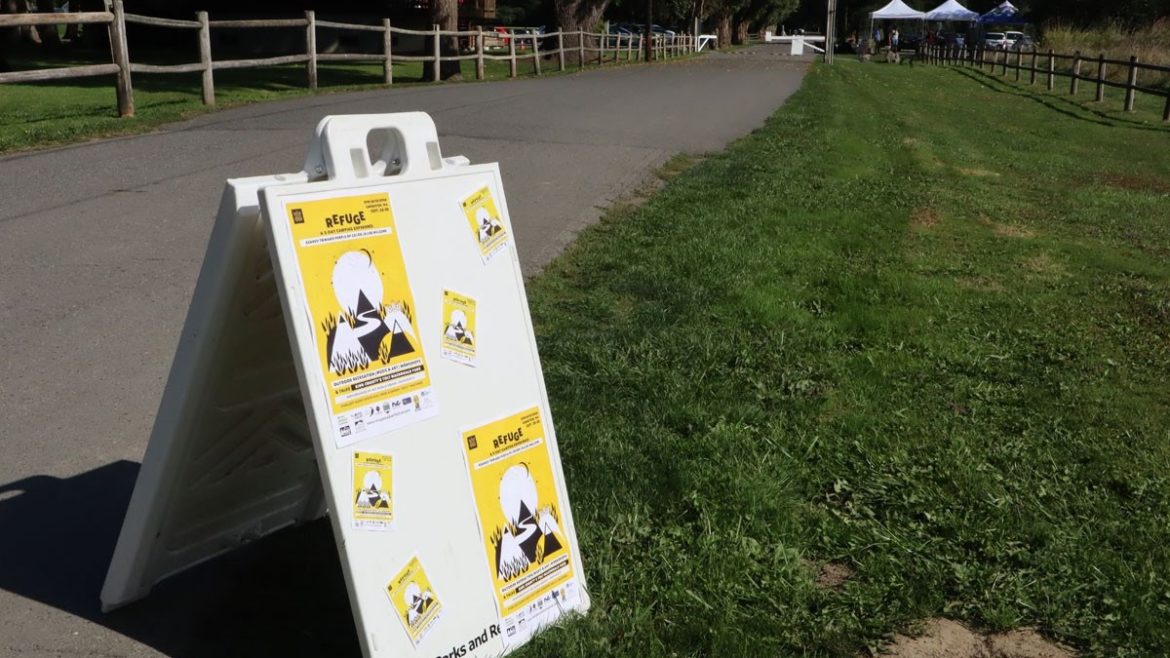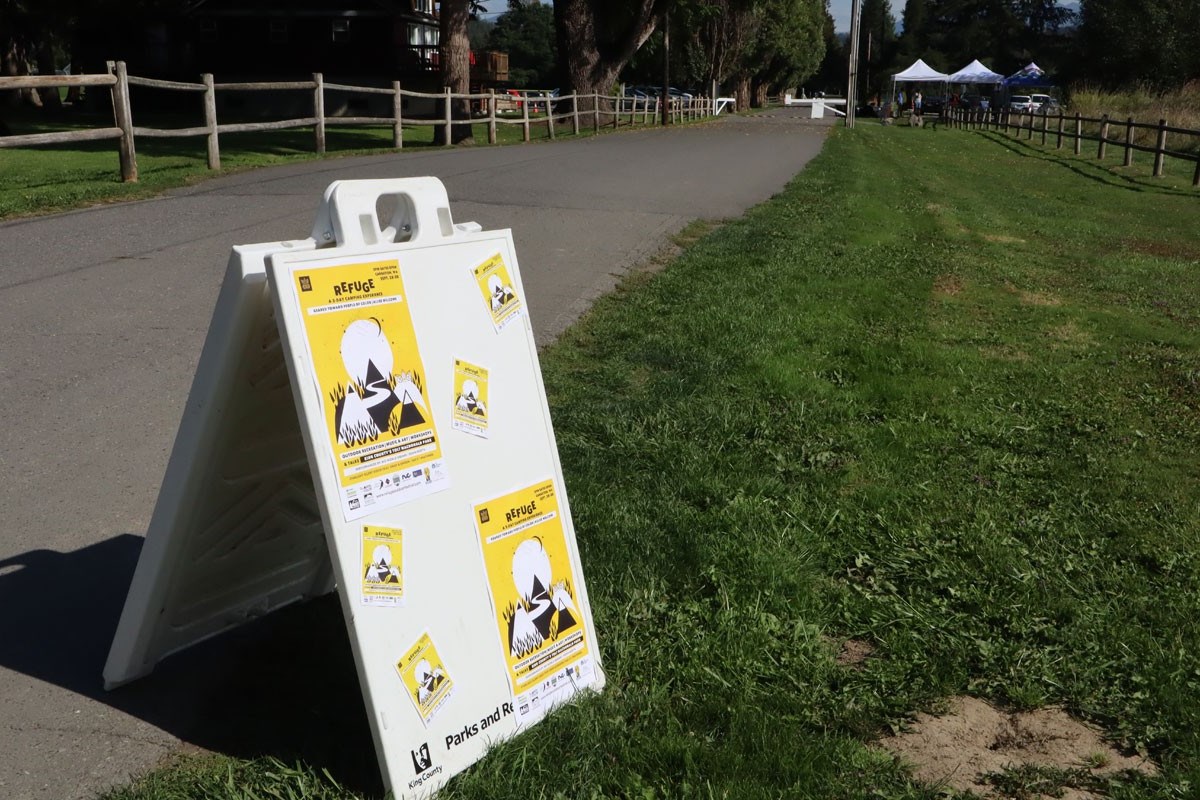September 10, 2021
Eliza Foster, Communications Coordinator & Caroline Villanova, Community Projects Manager
In August 2021, despite a heatwave and wildfire smoke, around 100 BIPOC (Black, Indigenous, People of Color) campers of all ages came out to spend a long weekend at Refuge Outdoor Festival at Squire Creek Park near Darrington. Participants took workshops, participated in a silent disco, attended a partners market, and most importantly, had the opportunity to build community and connect in person.
Refuge Outdoor Festival is a three-day camping experience that is geared for BIPOC and centered around “building community through outdoor recreation, conversations, music, and art.” Chevon Powell, the founder of Golden Bricks Events, the company behind Refuge Outdoor Festival, started Refuge four years ago out of a desire to see more people of color outside recreating and creating community.
In the last year and a half, Chevon has pivoted and redesigned her programming from a very in-person focused event to a virtual one, calling it a “camp-in.” With some COVID restrictions changing in Washington, the most recent Refuge Festival was held in-person for the first time since 2019.
We recently had a chance to connect with Chevon after a whirlwind of a year. Read our conversation below to learn more about the upcoming virtual event for Refuge, what the future looks like for the festival, and more!
What was your favorite part about the most recent Refuge Fest?
We had someone named Pablo just show up at our table and they came over and said, “hey, can I help y’all?” and we said sure! Pablo took over, they became the raffle MC and were truly the best raffle caller. At our closing circle their word was “happy.” To have a young kid in the woods just out their doing their thing, it brought a lot of joy. Pablo was doing the most out there.
What can people expect at the upcoming virtual Refuge event September 17-19? Highlights?
This one is going to be really cool. I think you know just the way the world is working now, that advocacy has become a hot topic in the community. And making sure that when we talk about outdoor recreation we are also talking about advocacy. We have workshops on how to build a digital toolkit around advocacy, another workshop around social justice resourcing. And we also have a workshop with someone talking about low tides that we went out and filmed at Alki a few weeks ago. We have an artist out of Philly who will be performing on Saturday and they’re dropping the videos for their EPs via Refuge. So that’s really cool.
And the DJ battle is so much fun! It’s fun to bounce between rooms and hang out with different folks. That’ll be a lot of fun.
I assume that you’re not leading all of these, right?
Oh no, definitely not! The beautiful thing is that we did a call to the community and between our sponsors and partners I think we have about 15 [really cool] workshops plus over the weekend. We’ll be behind the scenes making sure that the community is safe—safety is a big thing. I’ll get to watch the recordings afterwards, everything we recorded I went back last year and watched again.
And you’re expecting people from across the country, right?
Yes! Last year we had folks from across about 20 states which was just the most bizarre and random thing—everywhere from Wyoming to Kentucky. Last year I crashed the Black affinity space and there were three Black women from North Carolina talking about linking up afterward. They were saying, “you go hiking? I want to go hiking with you! We’re only two hours away from each other, let’s make it happen.” So I’ll probably crash things like that.
You have a goal of getting 10,000 people of color outside. How has that been going?
We kind of paused it with COVID, and we’re trying to reassess and figure out how to get a better count especially since we aren’t always there with people. With people engaging with us last year and the previous years we are at over 3,000 POC. We’re excited that our outreach continues to grow and that’s also the struggle [as a small organization].
Just the presence of Refuge has inspired people to get outside. Last year, right before we were heading into lockdown, I was in a pitch competition for a local organization called InnoVentures. After I gave my pitch, the MC who was also in the room, she said, “Chevon you don’t know me but I know you.” She went into saying how for the last few years she’s followed Refuge and she started crying and said it’s inspired her to get outside with her kids, she said hasn’t been able to make it to our events, but just seeing that we’re around and the way that we speak about the outdoors is for everyone has been super inspiring and had touched her pretty deeply.
How can other organizations assist Refuge?
We are always looking for partner organizations. We are starting to consider what it looks like to partner with organizations to do smaller one-offs for communities and a really targeted experience. We’re looking at that for next year and continuing to build our relationships and partnerships so that our reach does get to all people so that we can get them outside.
Not everyone is afforded the luxury to get outside, but are we creating opportunities for them to be able to connect with nature? That’s going to be our thing moving forward and that’s why this year alone we had thirty video projects. Even though we couldn’t get outside together or get outside with the folks we’ve touched across the country, we can create content and we can have you experience the outdoors from your living room.
Do you need volunteers? If people can’t volunteer their time, can they volunteer their money?
Yes, our donation link is always live! And we do have an open call for volunteers ongoing. Because yes, we have the virtual programming that we need support for, but then we are also growing as an organization. Like sometimes I don’t have the monetary resources to for example, redo the website, but if someone wants to volunteer to support that happening, that’s great.
For virtual, we are looking for about ten more volunteers and that’s just helping with chat. Having folks moderate the chat is a way to make our community feel safe.
Is there a future of Refuge outside of Washington?
Yeah that’s something that’s really exciting! Last year we were thinking we were going to expand in 2020, but 2020 told us all different things. We are looking to stay with our current program into 2022. In 2023 we’re hoping to expand Refuge to places like California and the east coast. I always looked at it as a more in your backyard event, because Refuge’s biggest thing is making the community and building the connections and yes you can do that by flying to another place and meeting folks, but how much more impactful if it was like people who live 15 minutes or two hours from each other. It’ll be a much broader impact when it’s like that.
We have had people run into each other. In fact, one woman from Seattle ran into someone she met at Refuge in a coffee shop in Oakland! That’s dope.
How do you approach creating partnerships and relationships?
It takes a lot of work. One of the things that we’re considering when we’re looking at [Refuge] is how are we better in community? And how are we connected in those communities? Refuge in Seattle is the flagship and has a community advisory board, from people all over the country.
In other cities I have started having conversations with folks about building community advisory boards there because we want to be connected to the community and I can’t do that because I am not there. And I don’t have the capacity to build the level of community that I think Refuge needs in each community and I don’t want to, it’s important that each city has that. I can’t lead in a community that isn’t mine. I’ve found that as you’re in community you’re always learning and growing and moving in different ways because if you’re staying still you’re not doing it in community, you’re just doing a thing.
As you’ve wrapped the fourth Refuge Festival what are some lessons you’ve learned?
One of the lessons is being present. Being present in the community and they’ll tell you what they want and how they want it. I also think active listening is a big one and then learning publicly. We’ve had to learn publicly and had to apologize publicly for things that we’ve done wrong—that’s a huge lesson for me. This is a big shocker, but I am very much an introvert and when I started Refuge I wouldn’t even tell people why I was starting it, like my own individual story. I wouldn’t talk to people in public, that terrified me. I would be in the corner, even if I was with a bunch of people.
I’ve had to step into my own power more than I ever thought. When I was first called on stage at an event at REI I was in tears because I was having a panic attack. To go from that to where I am today like, “yeah, I’ll keynote, let’s do this!” is big.
It’s the big life lessons to take those steps to do it and knowing why you’re doing it. I do it for the community and I do it for the change that I want to see. It’s not all just about outdoor recreation and conservation, we’re all on this planet together so let’s come together and get it together. That’s why I do the work that I do.
Interested in learning more about Refuge or attending the upcoming virtual event? You can learn more on their site.
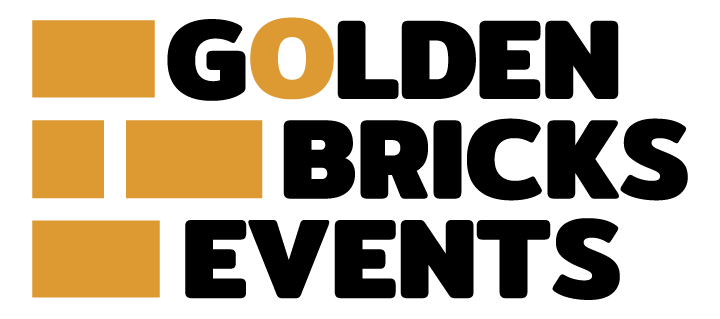


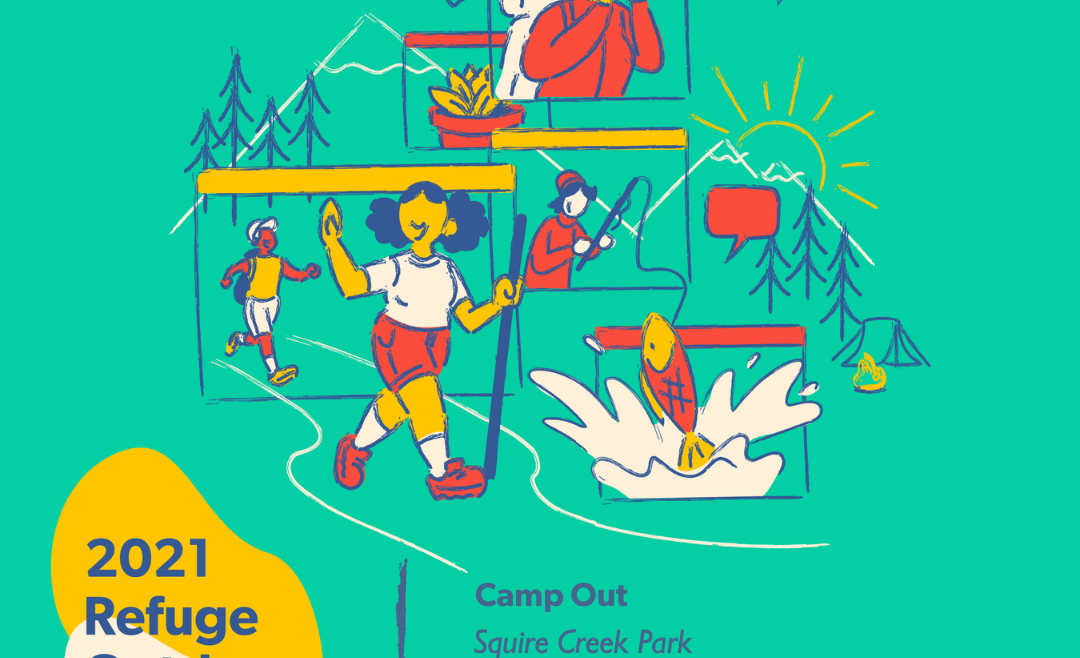

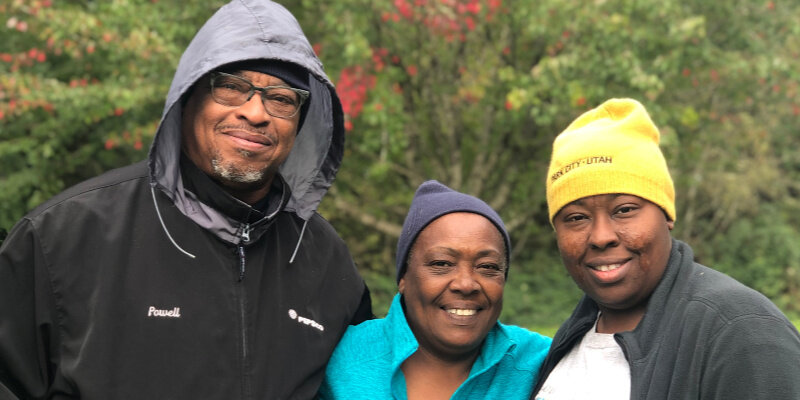
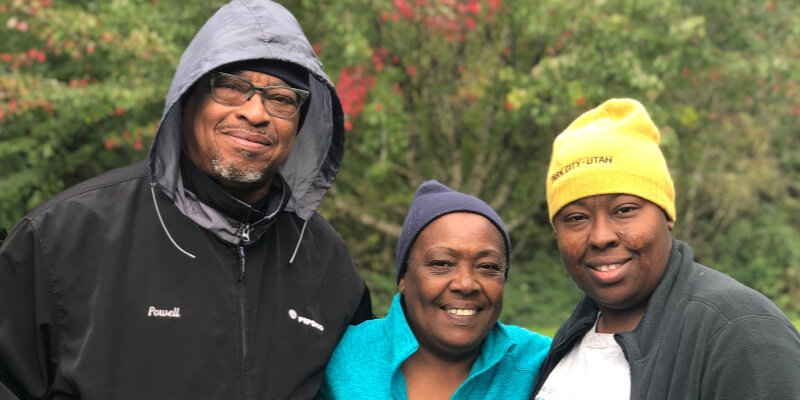
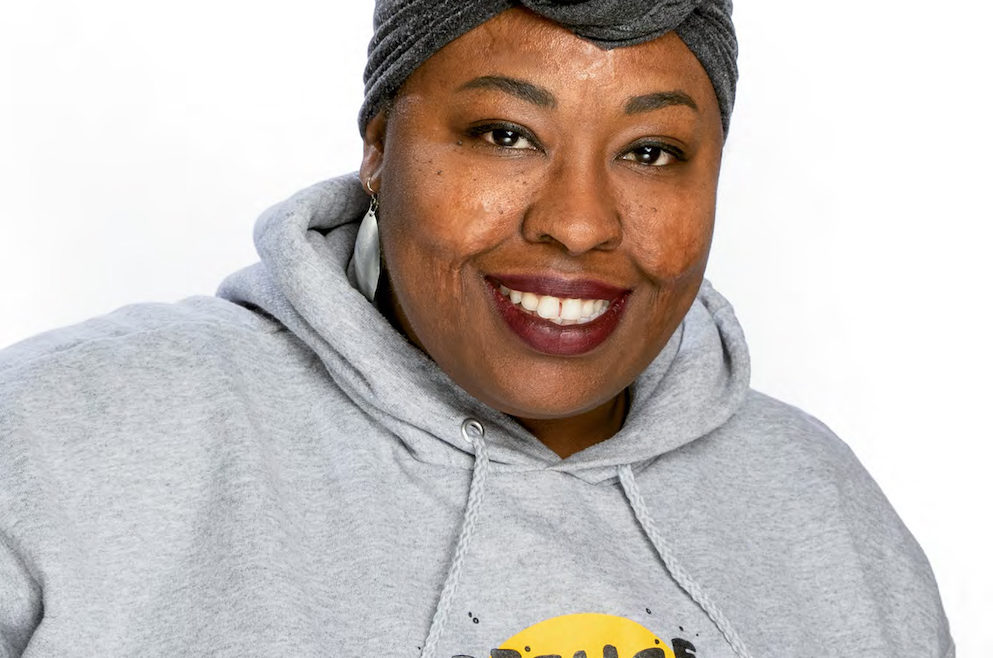
![a73-local-hero-chevon-powell Chevon Powell, organizer of the Refuge Outdoor Festival. [Photo] Earica Brown](https://i0.wp.com/dev.alpinist.com/wp-content/uploads/2023/09/a73-local-hero-chevon-powell.jpg?w=1200&ssl=1)
![a73-local-hero-2 The author, Anaheed Saatchi. [Photo] Courtesy Anaheed Saatchi](https://i0.wp.com/dev.alpinist.com/wp-content/uploads/2023/09/a73-local-hero-2.jpg?w=1200&ssl=1)


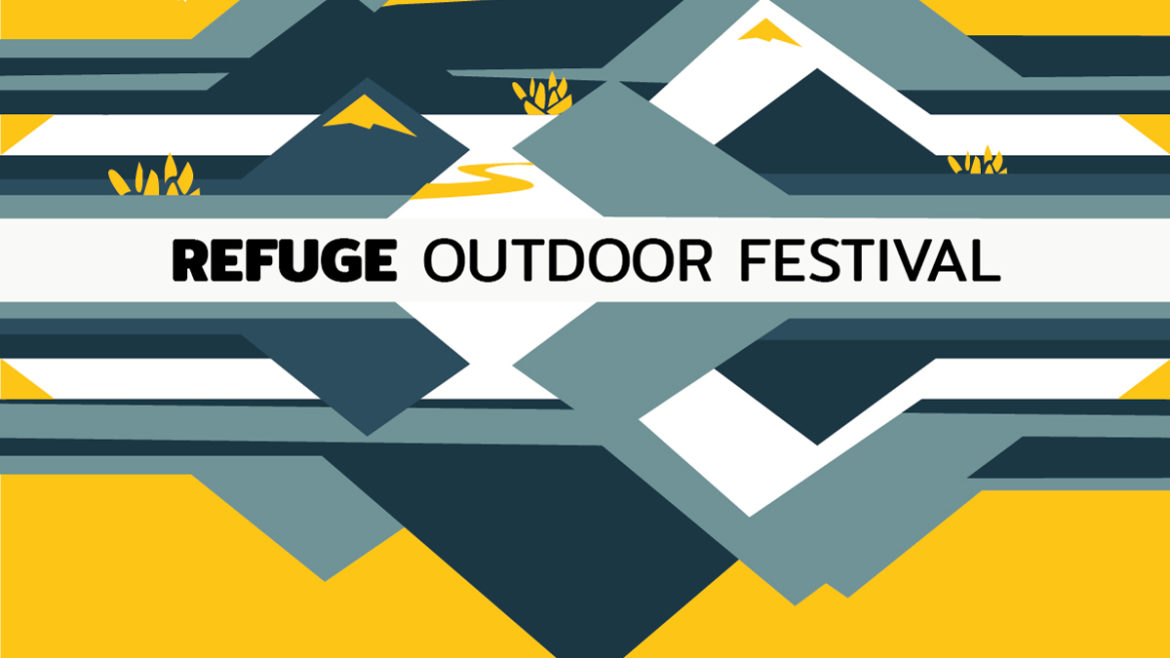

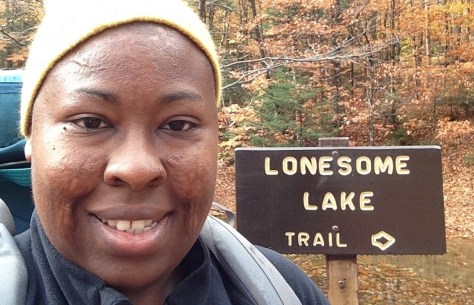



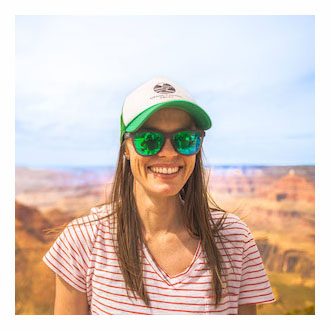
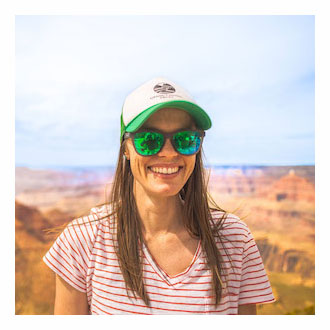 Amber Reimondo is the Energy Program Director at the
Amber Reimondo is the Energy Program Director at the 



